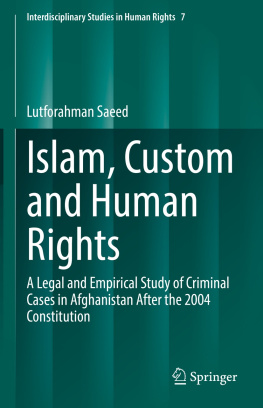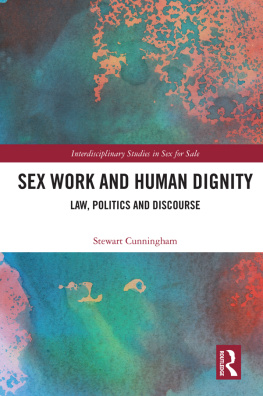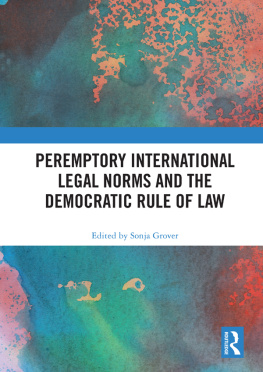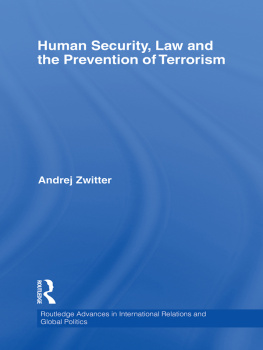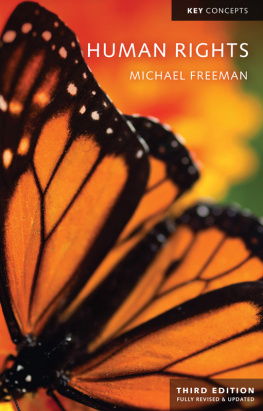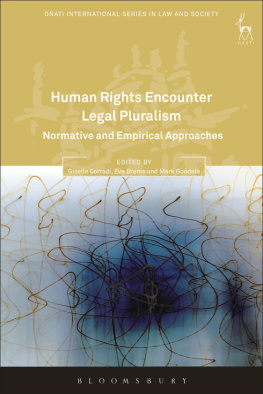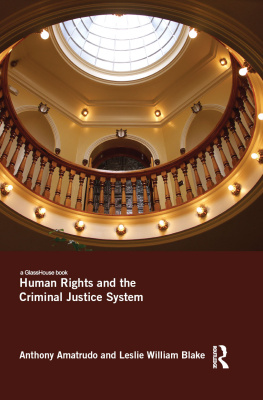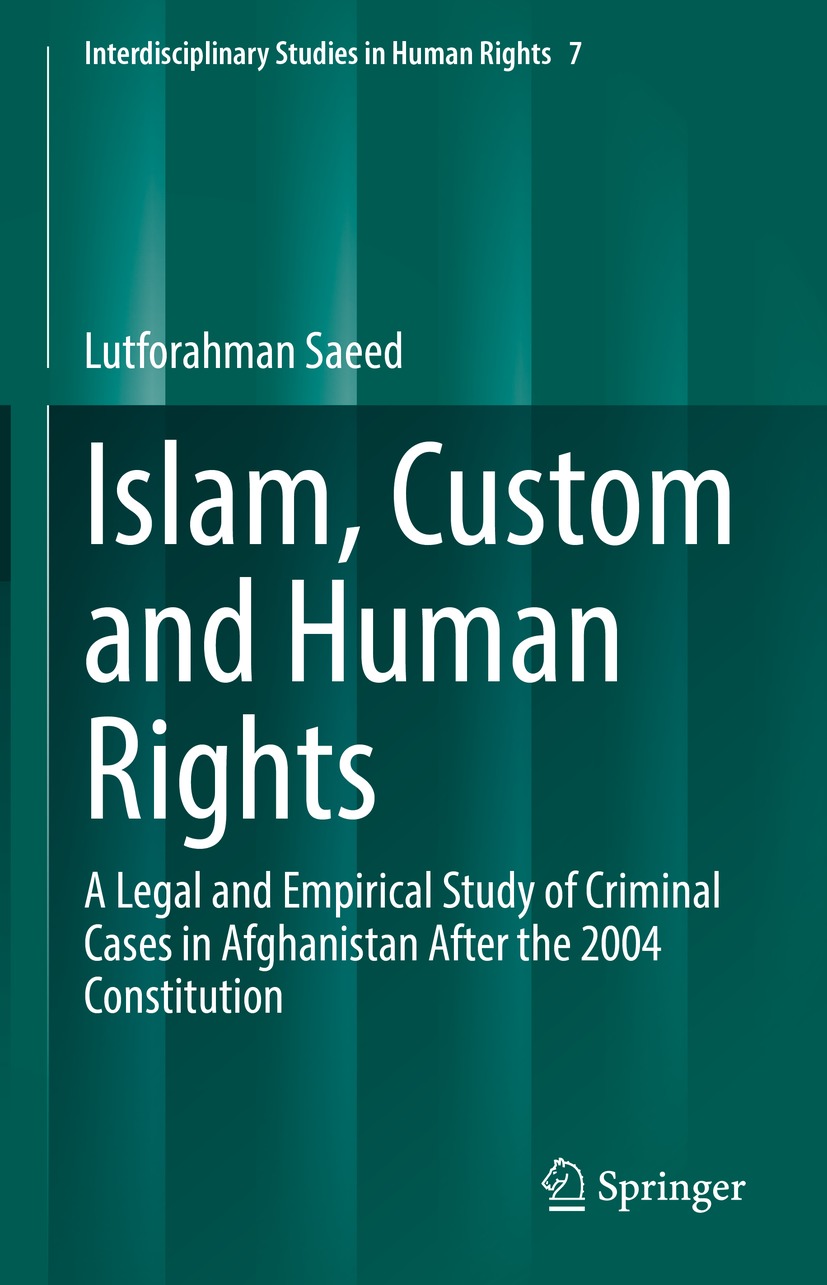Volume 7
Interdisciplinary Studies in Human Rights
Editor-in-Chief
Markus Krajewski
Faculty of Law, Friedrich-Alexander-University Erlangen-Nrnberg, Erlangen, Germany
Series Editors
Petra Bendel
Center for Area Studies, Friedrich-Alexander-University Erlangen-Nrnberg, Erlangen, Germany
Heiner Bielefeldt
Institute of Political Science, Friedrich-Alexander-University Erlangen-Nrnberg, Erlangen, Germany
Andreas Frewer
Institute for History and Ethics of Medicine, Friedrich-Alexander-University Erlangen-Nrnberg, Erlangen, Bayern, Germany
Manfred L. Pirner
Religious Education, Friedrich-Alexander-University Erlangen-Nrnberg, Nrnberg, Germany
Human rights are one of the normative cornerstones of contemporary international law and global governance. Due to the complexities of actual or potential violations of human rights and in light of current crises, new and interdisciplinary research is urgently needed. The series Interdisciplinary Studies in Human Rights recognizes the growing importance and necessity of interdisciplinary research in human rights. The series consists of monographs and collected volumes addressing human rights research from different disciplinary and interdisciplinary perspectives, including but not limited to philosophy, law, political science, education, and medical ethics. Its goal is to explore new and contested questions such as the extraterritorial application of human rights and their relevance for non-state actors, as well as the philosophical and theoretical foundations of human rights. The series also addresses policy questions of current interest including the human rights of migrants and refugees, LGBTI rights, and bioethics, as well as business and human rights.
The series editors are Members of the Centre for Human Rights Erlangen- Nrnberg (CHREN), an interdisciplinary research center at Friedrich-Alexander- University Erlangen-Nrnberg. The Advisory Board brings together human rights scholars from a wide range of academic disciplines and regional backgrounds. The series welcomes suggestions for publications of academic research falling into the series subject matter.
More information about this series at http://www.springer.com/series/15339
Lutforahman Saeed
Islam, Custom and Human Rights
A Legal and Empirical Study of Criminal Cases in Afghanistan After the 2004 Constitution
1st ed. 2022

Logo of the publisher
Lutforahman Saeed
Islamic Law Faculty, Kabul University, Kabul, Afghanistan
ISSN 2509-2960 e-ISSN 2509-2979
Interdisciplinary Studies in Human Rights
ISBN 978-3-030-83085-4 e-ISBN 978-3-030-83086-1
https://doi.org/10.1007/978-3-030-83086-1
The Editor(s) (if applicable) and The Author(s), under exclusive license to Springer Nature Switzerland AG 2022
This work is subject to copyright. All rights are solely and exclusively licensed by the Publisher, whether the whole or part of the material is concerned, specifically the rights of translation, reprinting, reuse of illustrations, recitation, broadcasting, reproduction on microfilms or in any other physical way, and transmission or information storage and retrieval, electronic adaptation, computer software, or by similar or dissimilar methodology now known or hereafter developed.
The use of general descriptive names, registered names, trademarks, service marks, etc. in this publication does not imply, even in the absence of a specific statement, that such names are exempt from the relevant protective laws and regulations and therefore free for general use.
The publisher, the authors and the editors are safe to assume that the advice and information in this book are believed to be true and accurate at the date of publication. Neither the publisher nor the authors or the editors give a warranty, expressed or implied, with respect to the material contained herein or for any errors or omissions that may have been made. The publisher remains neutral with regard to jurisdictional claims in published maps and institutional affiliations.
This Springer imprint is published by the registered company Springer Nature Switzerland AG
The registered company address is: Gewerbestrasse 11, 6330 Cham, Switzerland
I dedicate this book to my wife, Hosna Saeed, and my children for their endless support without whom I would not have been able to complete this research. In addition, I dedicate this research to my deceased parents, who paved the ground for me to reach this stage, though they were unable to see the completion of it.
Foreword
This book deals with a topic of outstanding relevance from both scientific and practical legal perspectives. It combines thorough empirical research with a sound study of legal documents and literature. The author had to tackle considerable obstacles, given the extreme form of legal and cultural normative pluralism in Afghanistan and the factual shortcomings in the Afghan judiciary and administration. It is extremely difficult to figure out which normative setting was and is to be applied in general and in the exemplary criminal law cases the author has researched and evaluated in detail.
The complexity of the topic is already demonstrated in the introductory remarks: while there are no provisions in Afghan criminal law dealing with the acts committed by the culprits, courts sentenced these persons on the basis of very general constitutional provisions enabling or demanding the application of Islamic law, while these outcomes are disputed both under Islamic law and human rights principles on the necessity of appropriately clear criminal law norms (nulla poena sine lege).
I highly appreciate the initiative of the author to engage in this research due to his extraordinary knowledge of the Afghan legal and social situation and his equally extraordinary capabilities to get access to information, which is usually not available to Western researchers. In his work, he successfully links more theoretical and general reflections on the applicable norms, including the intricate issues of interpreting Islamic norms, with concrete case studies. The book provides a wealth of information, observations, and very plausible evaluations of the Afghan legal scene, its extraordinarily complex normative basis, its institutions, and the interplay between societal expectations. It enables deep insights into the challenges for formulating and implementing laws, which are broadly accepted and apt to be implemented in a highly multicultural country with limited means for the state administration and judiciary, not to mention the intricate security situation in many provinces.
The book also sheds light on the widespread superficial application of Sharia rules, be it due to a lack of sound knowledge or under the pressure of public opinion. Furthermore, the author obviously counts among the very small number of Afghan legal scholars digging deeply into the international theoretical debate on the reasons and emanations of legal pluralism in the context of Islam-related legal issues. Thus, for the first time, the tensions between traditional approaches to the application of legal norms and the rule of law, which clearly limits the scope of discretion for administrations and courts alike, are discussed and commented on in detail. Furthermore, the author has developed sound suggestions for reforms enabling the implementation of human rights standards in coherence with the countrys culture.

